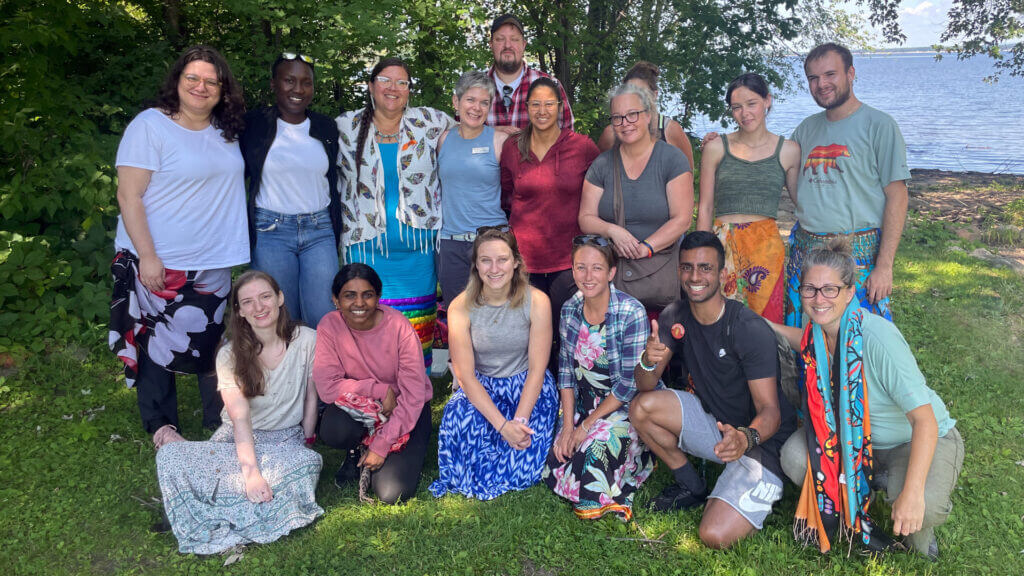The Sentiers Wakefield Trails (SWT) is a non-profit organization aimed at promoting trail creation, maintenance, and associated activities in Wakefield and La Pêche. It is a part of the Trans-Canada trail which is the longest multi-use trail system in the world. The SWT is funded by the Trans-Canada trail and the local municipality. Because the trail is a part of the Trans-Canada trail, particularly in Gatineau Park, the board frequently works with the National Capital Commission.
Last year the SWT conducted research with the Interdisciplinary Studies in Human-Centred Design (HCD) program at Algonquin College. With these new research findings, the SWT came to our team from the Interactive Media Design (IMD) program to modernize their website to enhance its user experience, improve the website’s usability and accessibility, and implement the findings from the HCD groups. Alongside the website revamp, we revised their logo, designed a branding guide for their website, and crafted a tagline to strengthen their brand’s cohesion. Our project process focused on ensuring the revamp met the SWT target audience’s needs. We created eight personas, each of which reflected the SWT key audiences. From these personas we gathered that the SWT had to improve its information and donation process for funders, the sign-up process to attract volunteers, and the quantity and quality of content for trail users and trail associations. We conducted usability testing with three target audiences for the website to ensure the user experience aligned with their needs and goals.
Additionally, we enhanced the website’s SEO and addressed accessibility issues to improve the usability of the website. During the planning phase of the project, we conducted an SEO audit on the SWT which revealed many issues that had to be solved. Although the selected platform, Weebly, was limited in terms of SEO functionality, we still improved the SEO with what could be modified. Most importantly we fixed many of the issues impeding accessibility, particularly a lack of alt text on images. In companion to our accessibility fixes on the technical side, we ensured all the branding colours and elements had visible contrast and legible text sizes to assist low-vision users. To help the maintainers of the SWT website – who are an older demographic, we recorded how-to video tutorials for them to assist them in maintaining the website. This was to ensure our improvements can be sustained after our revamp. With these SEO and accessibility improvements, we also set up Google Analytics for the website to help the SWT ensure their website is meeting their goals.



